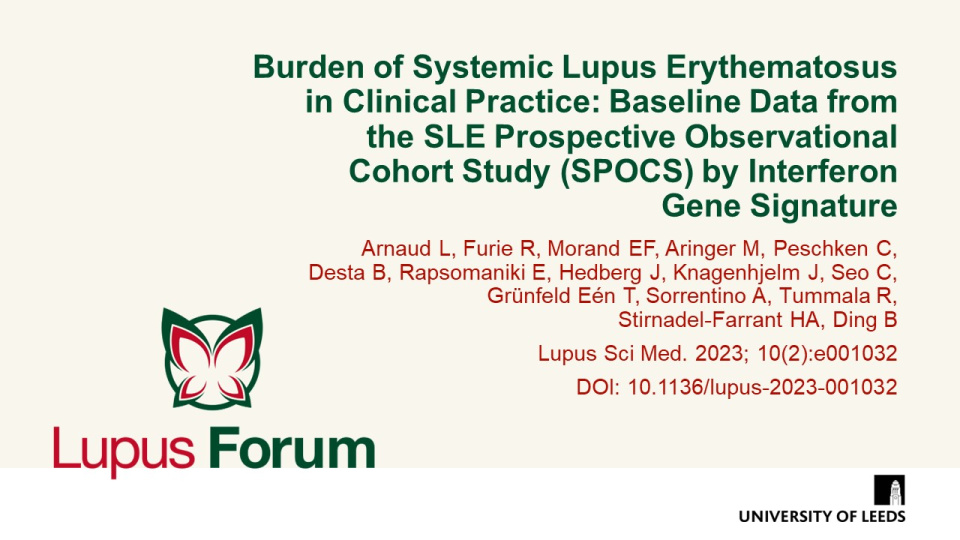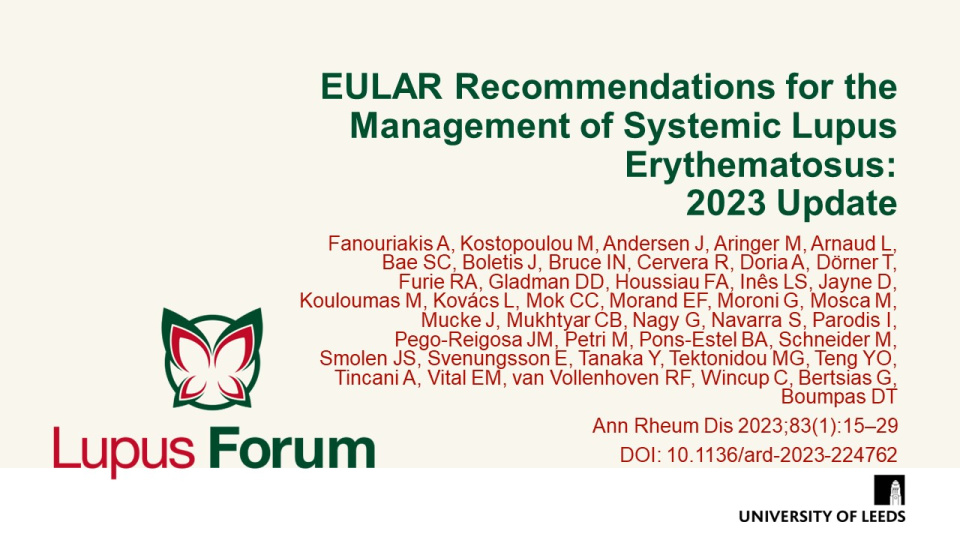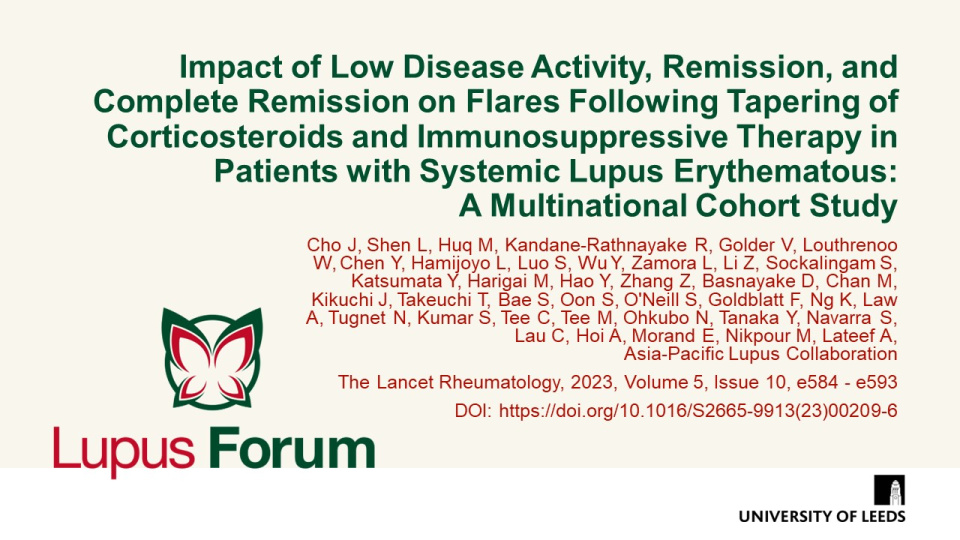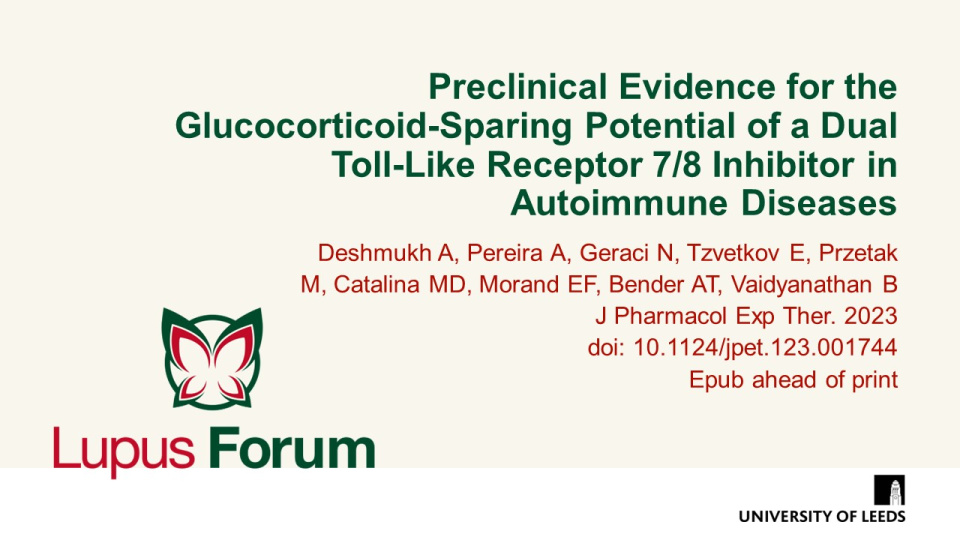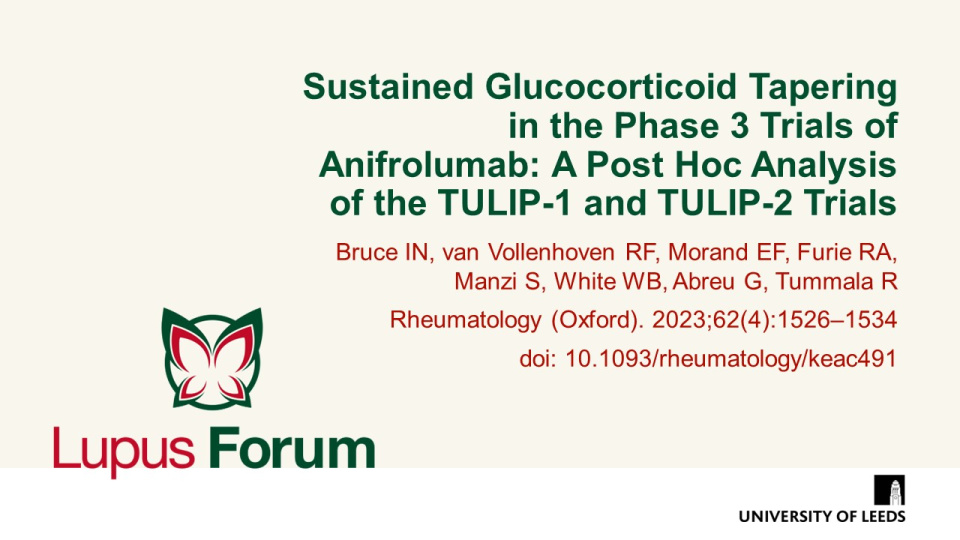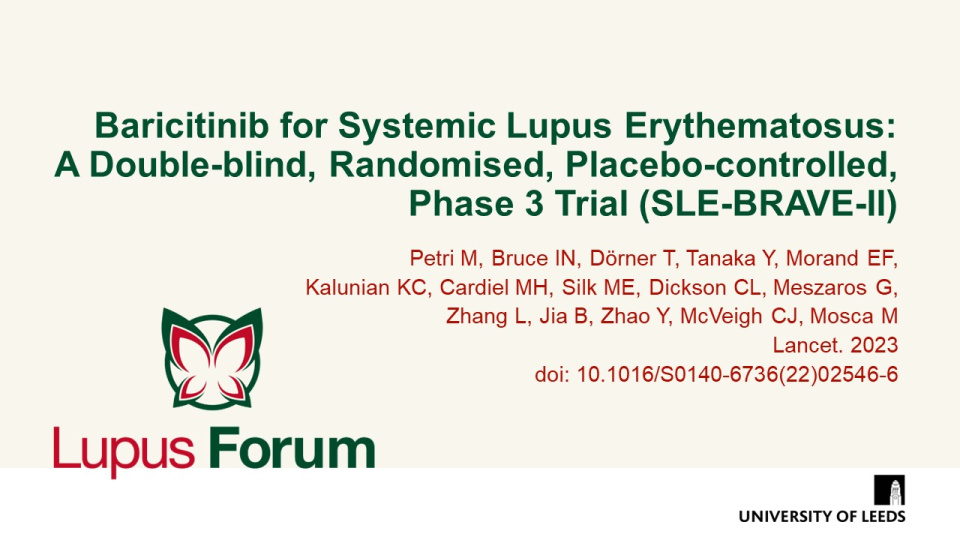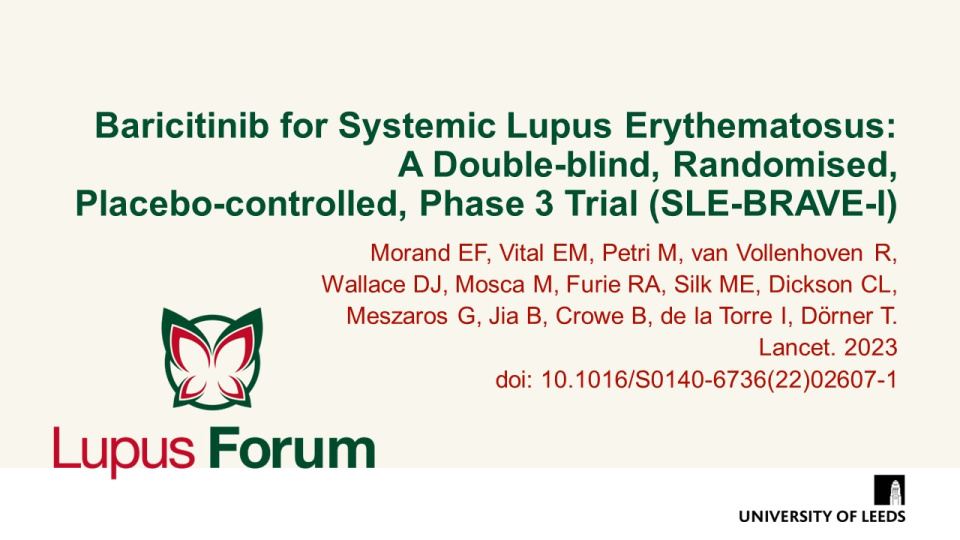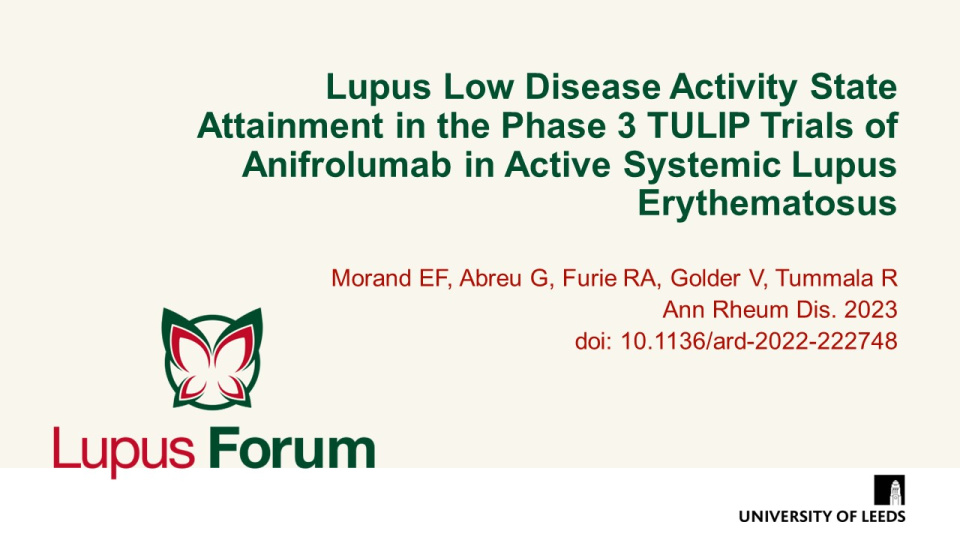Publications
Find coverage of the latest original articles on Lupus, focusing on those with data on therapeutic interventions and those that have clinical impact.
Burden of Systemic Lupus Erythematosus in Clinical Practice: Baseline Data from the SLE Prospective Observational Cohort Study (SPOCS) by Interferon Gene Signature
Lupus Sci Med. 2023; 10(2):e001032 DOI: 10.1136/lupus-2023-001032
This study from Arnaud et al described baseline characteristics of SLE patients grouped by disease activity and IFNGS category in the international SPOCS study. IFNGS-high patients were younger at SLE diagnosis, and a baseline SLEDAI-2K score ≥10 was associated with shorter disease duration, more frequent and more severe flares. IFNGS-low patients were more likely to exhibit musculoskeletal and CNS comorbidities than IFNGS-high patients. Continuation of the SPOCS study will allow investigation into how different baseline characteristics affect long-term outcomes in SLE patients.
Keywords:
EULAR Recommendations for the Management of Systemic Lupus Erythematosus: 2023 Update
Ann Rheum Dis 2023;83(1):15–29 DOI: 10.1136/ard-2023-224762
The objective of this international task force was to update the EULAR recommendations for the management of SLE. The Task Force agreed on 5 overarching principles and 13 recommendations, generating an overall framework for the approach to a patient with SLE. The updated recommendations provide consensus guidance on the management of SLE, combining evidence and expert opinion.
Keywords:
Impact of Low Disease Activity, Remission, and Complete Remission on Flares Following Tapering of Corticosteroids and Immunosuppressive Therapy in Patients with Systemic Lupus Erythematous: A Multinational Cohort Study
The Lancet Rheumatology, 2023, Volume 5, Issue 10, e584 - e593 DOI: https://doi.org/10.1016/S2665-9913(23)00209-6
In this study, tapering of corticosteroids or immunosuppressive therapy in patients in LLDAS, remission, or complete remission was associated with excess flares versus continuing with therapy. Tapering in complete remission was associated with lower odds of flares compared with tapering in LLDAS or remission. In addition, patients with longer sustained duration of LLDAS or remission at the time of tapering had lower odds of flare and longer time to flare versus those with a shorter duration of LLDAS or remission.
Preclinical Evidence for the Glucocorticoid-Sparing Potential of a Dual Toll-Like Receptor 7/8 Inhibitor in Autoimmune Diseases
J Pharmacol Exp Ther. 2023 doi: 10.1124/jpet.123.001744 Epub ahead of print
Preclinical evidence indicates a glucocorticoid (GC)-sparing potential for toll-like receptor (TLR)7/8 inhibitor compounds, suggesting TLR7/8i may offer a new strategy for the treatment of autoimmune diseases.
Sustained Glucocorticoid Tapering in the Phase 3 Trials of Anifrolumab: A post hoc Analysis of the TULIP-1 and TULIP-2 Trials
Rheumatology (Oxford). 2023 doi: 10.1093/rheumatology/keac491
Pooled analysis of the TULIP trials demonstrates that sustained glucocorticoid (GC) tapering is associated with several clinical benefits in patients with moderate-to-severe SLE.
Keywords:
Baricitinib for Systemic Lupus Erythematosus: a Double-blind, Randomised, Placebo-controlled, Phase 3 trial (SLE-BRAVE-II)
Lancet. 2023 doi: 10.1016/S0140-6736(22)02546-6
Negative results of SLE-BRAVE-II trial show that evidence for the efficacy of baricitinib in SLE is inconclusive.
Baricitinib for Systemic Lupus Erythematosus: a Double-blind, Randomised, Placebo-controlled, Phase 3 Trial (SLE-BRAVE-I)
Lancet. 2023 doi: 10.1016/S0140-6736(22)02607-1
Primary endpoint in SLE-BRAVE-I study was met for the 4 mg baricitinib group, however, key secondary endpoints were not.
Lupus Low Disease Activity State Attainment in the Phase 3 TULIP Trials of Anifrolumab in Active Systemic Lupus Erythematosus
Ann Rheum Dis. 2023. doi: 10.1136/ard-2022-222748
Post-hoc anaylsis of TULIP trials shows that, compared with placebo, anifrolumab treatment was associated with earlier, more frequent, and more prolonged and sustained lupus low disease activity state (LLDAS).


